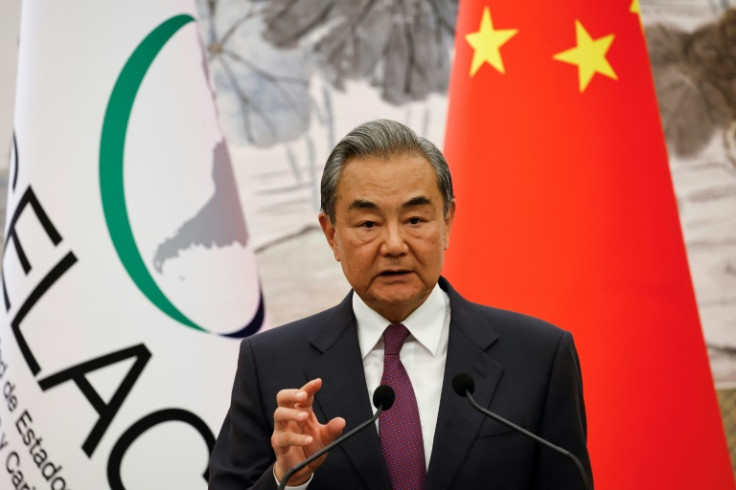China's Top Diplomat To Visit EU, Germany, France Next Week

China's top diplomat Wang Yi will head to Europe next week for talks with counterparts from the European Union, Germany and France, Beijing said on Friday as it seeks to shore up fraught ties with the bloc.
Beijing has sought to improve relations with Europe as a counterweight to superpower rival United States, though frictions remain over trade and China's close ties with Russia despite its war in Ukraine.
China and the European Union will also host a summit next month marking 50 years since Beijing and Brussels established diplomatic ties.
Wang's trip will take him to Brussels, France and Germany and last from next Monday to Sunday, Beijing said.
"The world is undergoing an accelerated evolution of a century-old change, with unilateralism, protectionism and bullying behaviour becoming rampant," foreign ministry spokesman Guo Jiakun said -- a thinly-veiled swipe against the United States under President Donald Trump.
China's top diplomat will meet with EU counterpart Kaja Kallas at the bloc's headquarters in Brussels for "high-level strategic dialogue", he said.
In Germany he will hold talks with Foreign Minister Johann Wadephul on diplomacy and security -- his first visit since Berlin's new conservative-led government took power in May.
China looks forward to "strengthening strategic communication, enhancing pragmatic cooperation, and promoting new developments of the China-Germany comprehensive strategic partnership," Guo said.
Ties between Berlin and Beijing, he added, were "injecting certainty, stability, and positive energy into a turbulent world".
In France, Wang will meet minister for Europe and foreign affairs Jean-Noel Barrot, who visited China in March.
"Foreign Minister Wang Yi will exchange views with the French side on the international situation, China-France ties and China-Europe relations," Guo said.
And in Brussels Wang will also hold talks with Belgium's Prime Minister Bart De Wever and Deputy PM and Foreign Minister Maxime Prevot, Beijing said.
Ties between Europe and China have strained in recent years as the bloc seeks to get tougher on what it says are unfair economic practices by Beijing and the yawning trade imbalance between them.
Last week, the European Union banned Chinese firms from government medical device purchases worth more than five million euros ($5.8 million) in retaliation for limits Beijing places on access to its own market.
The latest salvo in trade tensions between the 27-nation bloc and China covered a wide range of healthcare supplies, from surgical masks to X-ray machines, that represent a market worth 150 billion euros ($176 billion) in the EU.
In response, China accused the EU of "double standards".
Another tricky point has been rare earths.
Beijing has since April required licences to export these strategic materials from China, which accounts for more than 60 percent of rare earth mining production and 92 percent of global refined output, according to the International Energy Agency.
The metals are used in a wide variety of products, including electric car batteries, and there has been criticism from industries about the way China's licences have been issued.
China has proposed establishing a "green channel" to ease the export of rare earths to the European Union, its commerce ministry said this month.
© Copyright AFP {{Year}}. All rights reserved.




















